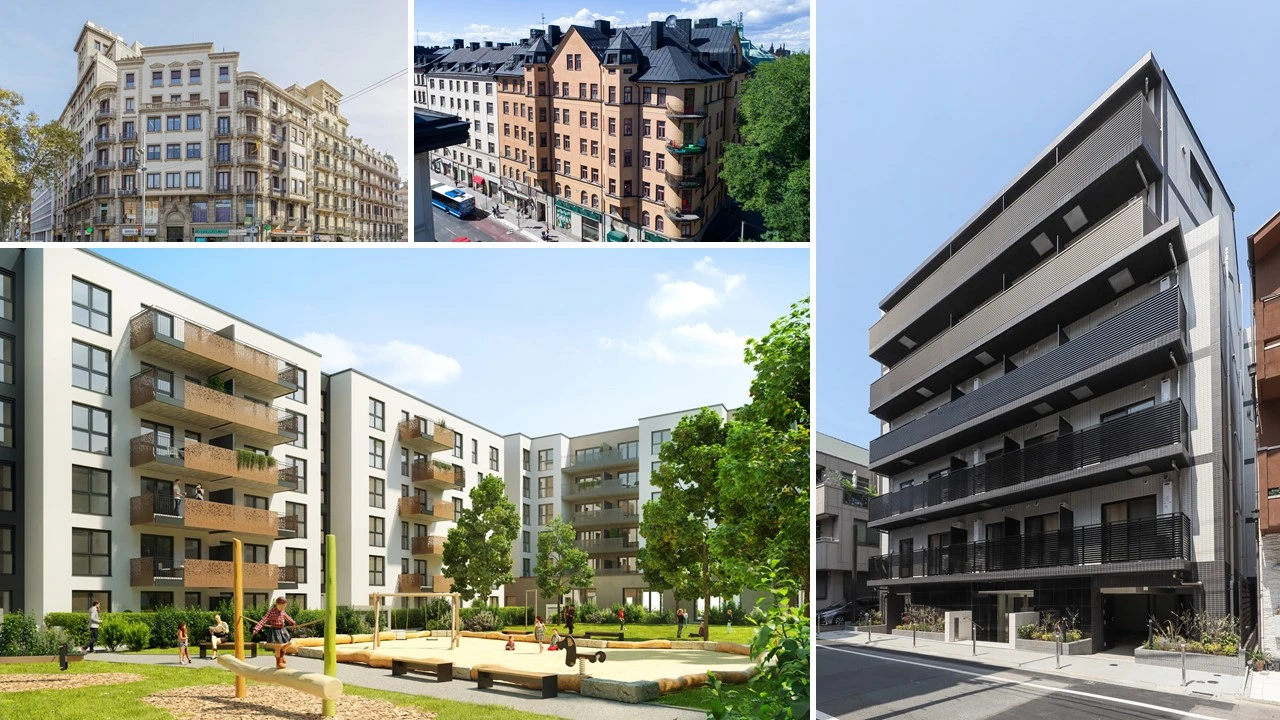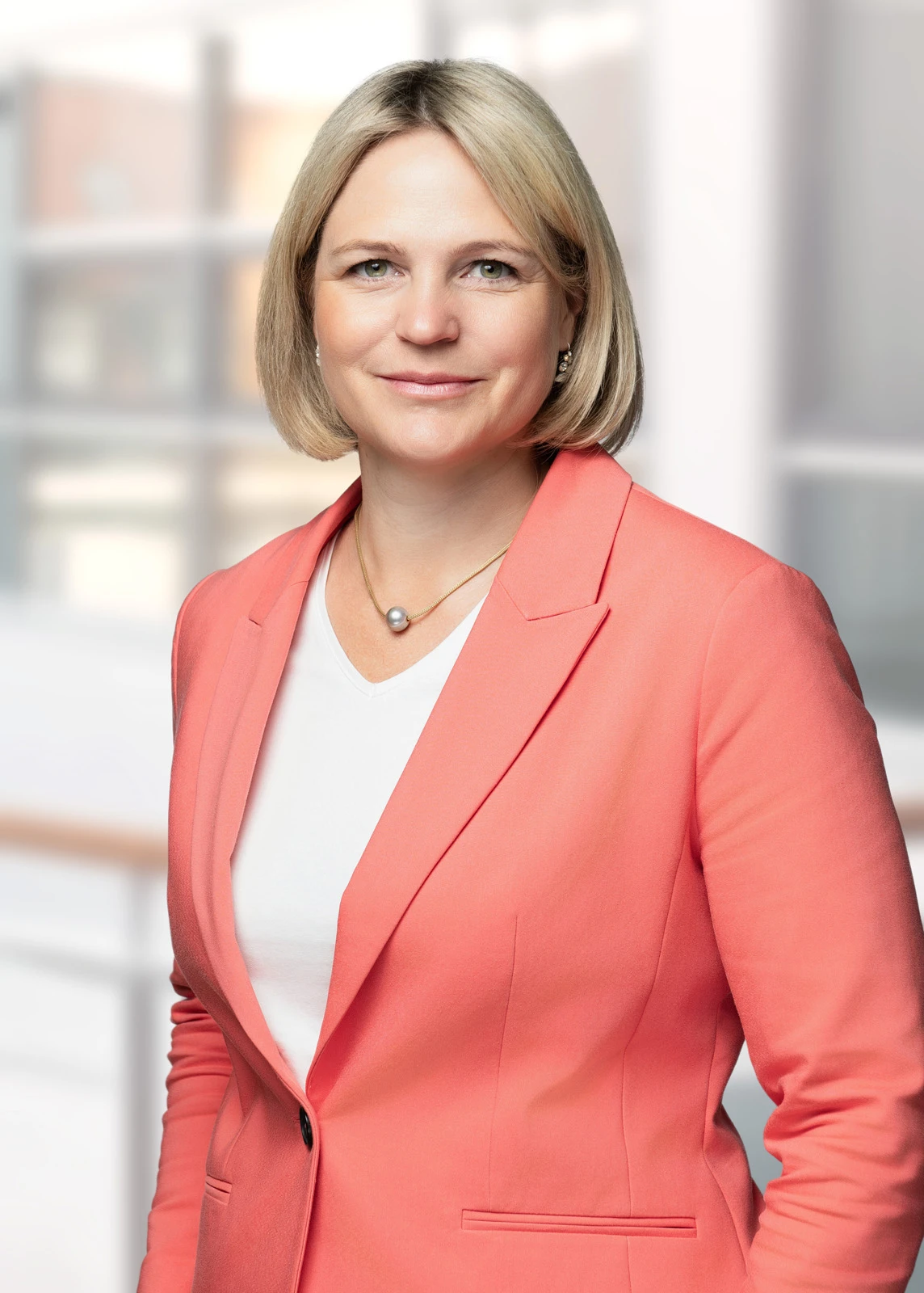Allianz Real Estate commits close to EUR 3bn across the global residential sector in 2021
Allianz Real Estate, acting on behalf of several Allianz Group and third-party companies, committed almost EUR 3 billion to the global residential sector in 2021. The firm’s assets under management (AUM) in the sector at the end of September 2021 stood at EUR 9 billion – in Europe, EUR 3.7 billion; the U.S., EUR 4.7 billion, and Asia-Pacific, EUR 0.7 billion – with further transactions in the fourth quarter of 2021 expected to push residential AUM closer to EUR 10 billion.

Image credits: top middle, Heimstaden; bottom, Schultheiß; right, CREAL
Over the past year, Allianz Real Estate has completed some of its most significant residential sector deals to date, including a number of firsts: its first single-asset Private Rented Sector (PRS) debt transaction in Europe, its first equity sector deal in Spain, and the first time it has invested in an institutional grade, affordable housing portfolio.
As part of its global ESG program, the firm is in the process of reviewing and aligning the assets in its European residential portfolio to Carbon Risk Real Estate Monitor (CRREM) decarbonization pathways. This will contribute to the firm’s stated ambition to reduce the carbon footprint of its global real estate portfolio by 25% by 2025, and to be net-zero by 2050.

Annette Kröger, CEO North & Central Europe at Allianz Real Estate
Annette Kröger, CEO North & Central Europe at Allianz Real Estate said: “The residential sector has proved highly resilient during the pandemic, with lower vacancies and better risk-adjusted returns compared to commercial real estate. The sector also continues to evolve and create opportunities. Continuing urbanization concentrated in key cities heightens the imbalances between demand and supply, while greater suburbanization caused by working-from-home might benefit areas with strong accessibility to cities.”
Allianz Real Estate’s multi-family portfolio in Japan now comprises over 6,000 units across 134 assets. In 2021, the firm acquired three multi-family residential portfolios in Tokyo for USD 100 million, comprising 24 high-quality assets with 853 units. In December, it also announced the first close with investors Ivanhoé Cambridge and Allianz on a new investment platform, Allianz Real Estate Asia-Pacific Japan Multi-Family Fund I, a USD 2 billion, closed-end fund which will build a diversified portfolio of multi-family residential assets across Japan’s top tier cities.
In the U.S., Allianz Real Estate invested USD 300 million into one of the world’s largest private single family rental vehicles, the Upward America Venture. Managed by LennarSFR, a subsidiary of the U.S.’s largest homebuilder Lennar Corporation, the venture aims to acquire more than USD 4 billion of new single-family homes in strategic locations across the U.S.
Key transactions in Europe over the past 12 months include the off-market transaction of its first PRS portfolio in Spain; the acquisition of a 300-unit affordable housing portfolio in Germany in an off-market forward purchase; and EUR 161 million in debt funding for the financing of 10 George Street in Canary Wharf, London – its first single-asset PRS debt transaction in Europe. In December, the firm also announced a joint venture with Heimstaden Bostad AB giving it exposure to a Swedish residential portfolio with a gross asset value of EUR 3 billion.
Looking ahead, the residential sector’s fundamentals remain attractive, believes Allianz Real Estate. Across Europe, the residential sector is highly fragmented, particularly with regards to the percentage of private rented stock under institutional ownership. In the UK, it is around 2%; in Germany, 15%; and as high as 70% in Sweden. This creates an opportunity for institutional investors to provide modern stock which is professionally managed.
In the U.S, the multi-family housing market makes up almost three quarters of the global, institutional grade residential stock, with increasing amounts of international capital buying into trends such as domestic migration to the Sun Belt and suburbanization within cities. And in Japan, the world’s third-largest residential market, stable cash flows and attractive stabilized yield spreads mean the sector continues to be a high-conviction theme for Allianz Real Estate.
Annette Kröger added: “The need for quality PRS assets in core locations will accelerate in importance globally as demand from tenants themselves continues to grow. Multi-family is one of the most prominent, institutional, stable asset classes. Long-term trends – such as a lack of affordable housing and urbanization – have helped bolster demand and fueled opportunities.”